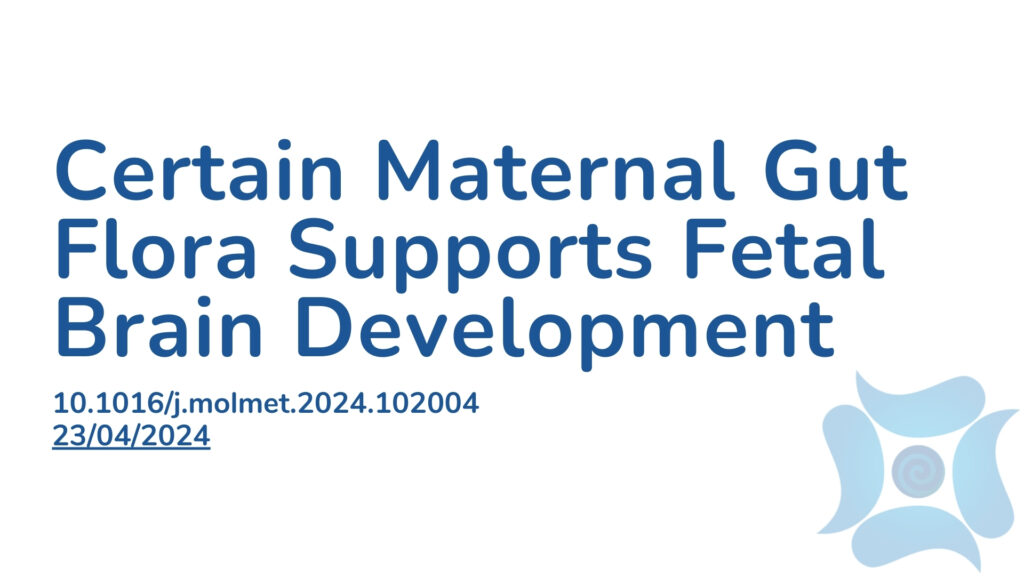Summary:
Fetal growth restriction (FGR), often caused by placental insufficiency, can impair the development of vital organs, including the brain, leading to neurodevelopmental disorders like cognitive dysfunction and cerebral palsy in children. Current treatments for FGR are inconsistent, and there is a dire need for better interventions. Recent studies emphasize the role of gut microbiota, particularly Bifidobacterium breve (B. breve), in supporting fetal brain development. Changes in maternal gut microbiota during pregnancy have been linked to various complications. Specifically, an increase in the genus Bifidobacterium, particularly Bifidobacterium breve, has been observed in the maternal gut during pregnancy. This bacterium offers benefits such as protecting against infections and modulating immune responses. A study using germ-free mice examined the impact of B. breve on fetal brain development and metabolism. Pregnant mice treated with B. breve showed significant positive impacts on fetal brain development, suggesting that the presence of this gut bacterium in the maternal microbiota plays a crucial role in the healthy development of the fetal brain. This research underscores the potential of targeting maternal gut microbiota to support fetal health.
Abstract:
Background: Recent advances have significantly expanded our understanding of the gut microbiome’s influence on host physiology and metabolism. However, the specific role of certain microorganisms in gestational health and fetal development remains underexplored. Objective: This study investigates the impact of Bifidobacterium breve UCC2003 on fetal brain metabolism when colonized in the maternal gut during pregnancy. Methods: Germ-free pregnant mice were colonized with or without B. breve UCC2003 during pregnancy. The metabolic profiles of fetal brains were analyzed, focusing on the presence of key metabolites and the expression of critical metabolic and cellular pathways. Results: Maternal colonization with B. breve resulted in significant metabolic changes in the fetal brain. Specifically, ten metabolites, including citrate, 3-hydroxyisobutyrate, and carnitine, were reduced in the fetal brain. These alterations were accompanied by increased abundance of transporters involved in glucose and branched-chain amino acid uptake. Furthermore, supplementation with this bacterium was associated with elevated expression of critical metabolic pathways such as PI3K-AKT, AMPK, STAT5, and Wnt-β-catenin signaling, including its receptor Frizzled-7. Additionally, there was stabilization of HIF-2 protein and modifications in genes and proteins related to cellular growth, axogenesis, and mitochondrial function. Conclusions: The presence of maternal B. breve during pregnancy plays a crucial role in modulating fetal brain metabolism and growth. These findings suggest that Bifidobacterium could modify fetal brain development, potentially offering new avenues for enhancing gestational health and fetal development through microbiota-targeted interventions.
Article Publication Date: 08/08/2024
DOI: 10.1016/j.molmet.2024.102004



